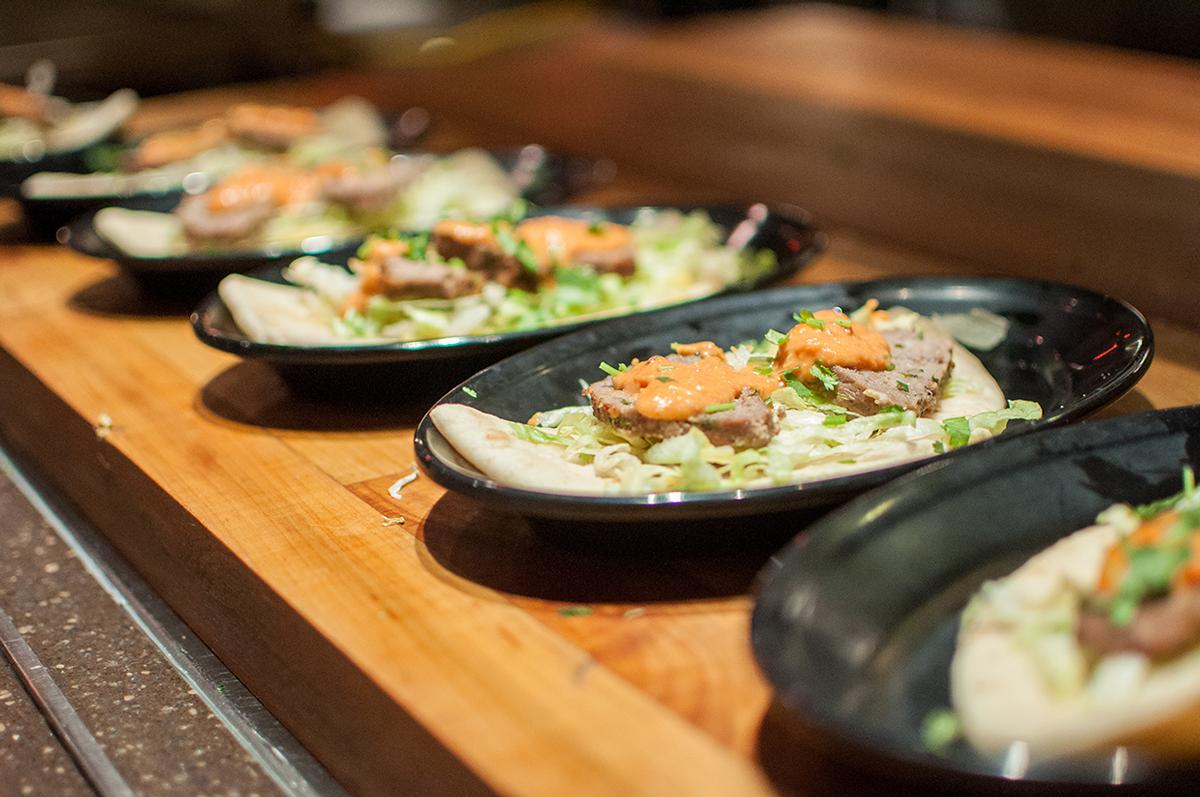
If I never see the word “chutney” in another meal description, it will be too soon. Far too often, Bon Appetit serves strange meals such as linguine alfredo with half-cooked bell peppers, roast beef with mango chutney and chicken-fried rubber. Okay, that last meal is not real, but their actual meals do lack consistency and palatable flavors. Although the quality of food Bon Appetit provides is a problem, it points to a greater issue — one that can be easily solved by bringing alternative food service choices onto campus in addition to Bon Appetit.
When I was a prospective student, I remember joyfully coming to Biola for a tour of campus. I heard so many great things about dorm life, campus activities and, believe it or not, the food served by the Caf. At the culmination of my tour, I had the opportunity to eat a meal in this highly praised Caf. Not to my surprise at the time, the food tasted amazing. The surprise came later when I became a student at Biola. The fantastic food that I experienced on my tour no longer tasted fantastic. As a freshman, and even a sophomore, I remained under the impression that a marketing ploy duped me. I was right, but the main problem goes beyond marketing and lies in Bon Appetit’s monopoly of the Biola food system.
In economics, a monopoly is defined as the exclusive possession or control of the supply or trade of a commodity or service. Our nation subscribes to laissez-faire capitalism, which means the general population believes that competition in business is good and monopolized industries are bad. When a company possesses a monopoly, they possess total control of what they produce, how they produce it and how much their product will cost. Monopolies exploit consumers because the lack of alternatives within the monopolized system takes away consumer purchasing power. The monopolistic organization solely controls the supply and demand. This lesson in economics sheds light on a disconcerting issue which no one has addressed in my four years as a Biola student. Biola allows Bon Appetit to exploit its students.
Bon Appetit is Biola's sole food service contractor, according to the Bon Appetit page on Biola’s website. This gives them the freedom of being the only food provider and distributor on campus. In other words, Biola gives Bon Appetit the right to run a monopoly. They control what students eat, when they eat it and how much what they eat will cost. The lack of competition on campus gives Bon Appetit no motivation to produce quality food. On top of that, Bon Appetit’s contract with Biola requires on-campus residents to purchase meal plans with no reimbursement for unused meals, nor any adequate alternative when the meals provided are less than desirable, as noted on the page regarding meal plans on Biola’s website. Although students who live on campus are more than welcome to purchase food off campus, they still have to pay their toll to Bon Appetit. Lack of competition creates lack of motivation. Lack of motivation results in poor quality food. Students must pay for these poor quality meals whether they eat them or not. The income Bon Appetit earns from creating poor quality food reinforces the lack of motivation and creates what I call “the cycle of student exploitation.”
I am not Bon Appetit’s biggest fan, but I know they can do better. For the past three years, they have served me food that I would not feed my dog, but I still remember my first meal with them. The memory remains unmarred in my mind, though my view of their business management and ethics have plummeted considerably. I desire to see Bon Appetit change their ways for the better and find something that motivates them to produce quality meals. As a student that has experienced exploitation by them — with Biola’s help — I truly believe bringing in additional food service providers would solve this problem. Competition will give the power of choice to students and the motivation to thrive to Bon Appetit.







